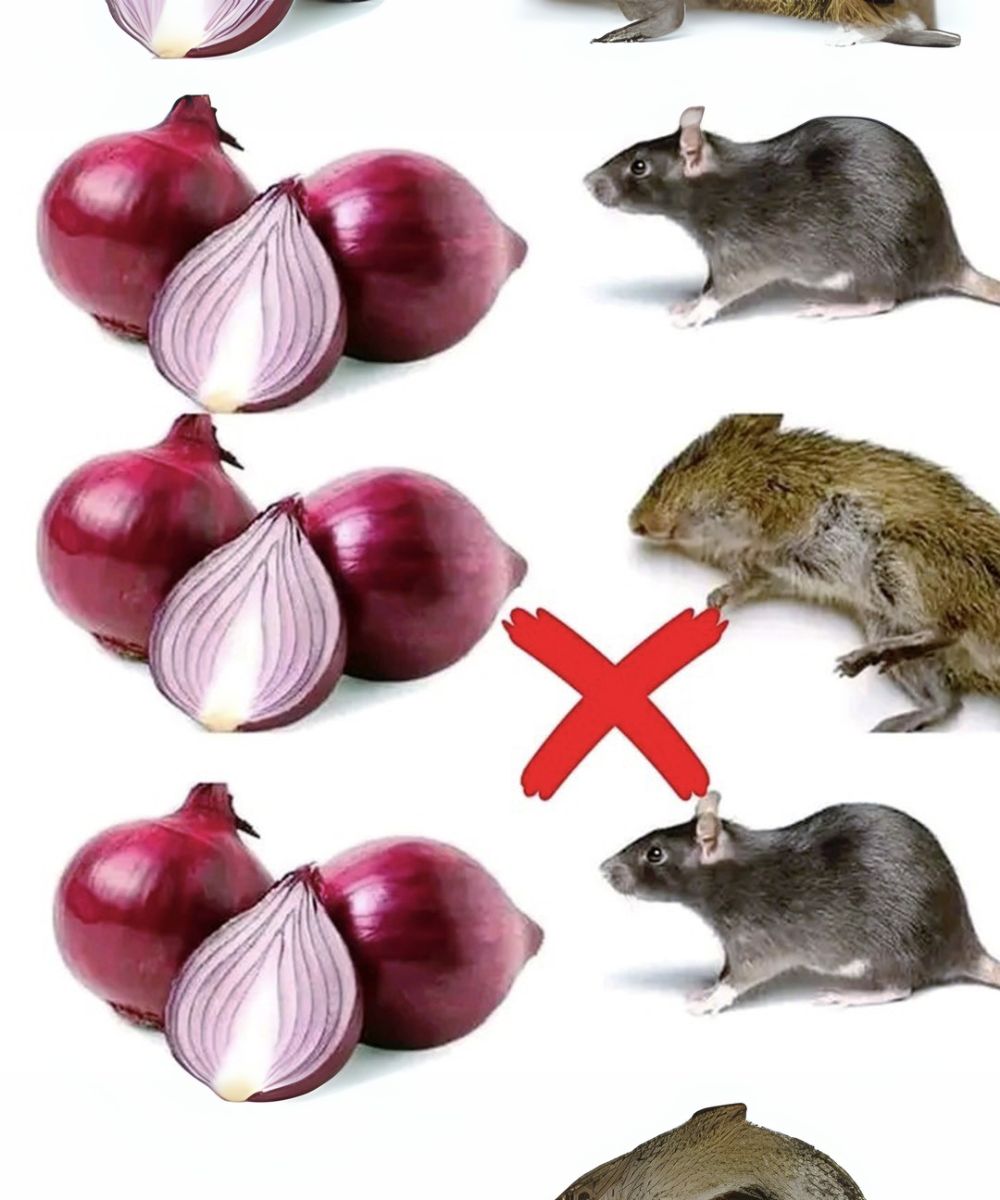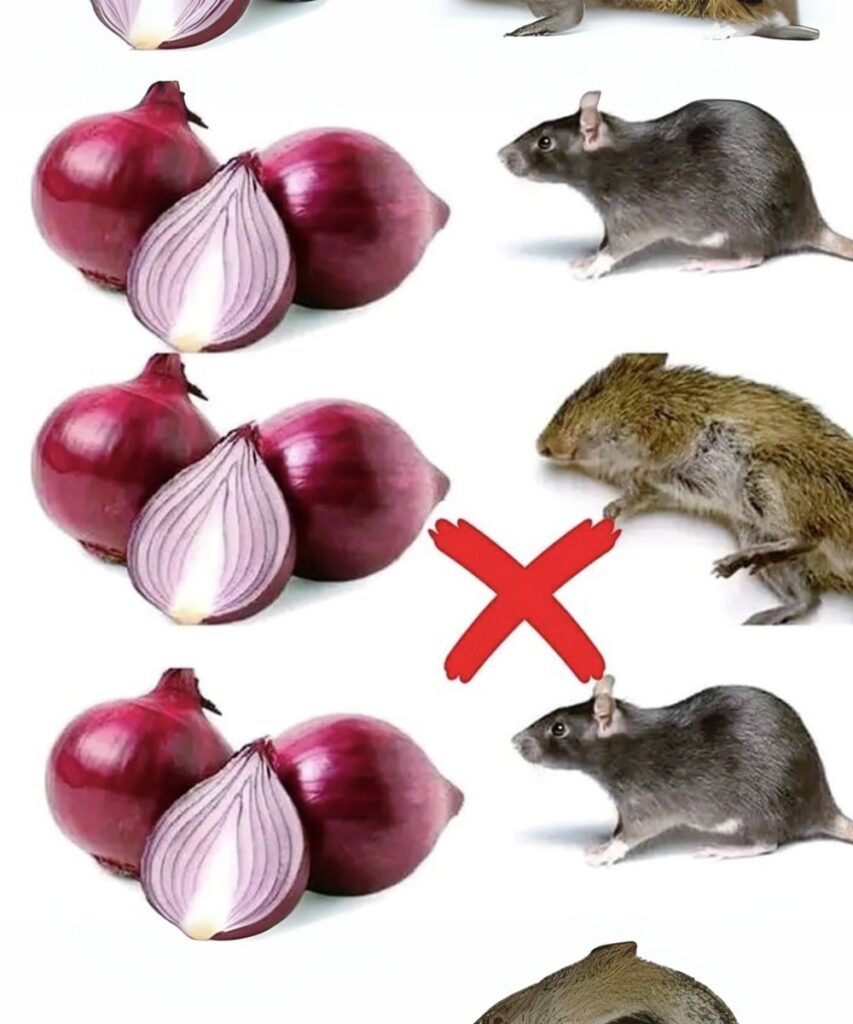Alright, let’s talk about something that pops up online a lot: the idea that you can just toss out some onions and magically get rid of rats. You might’ve seen headlines screaming, “Don’t waste your money on rat poison anymore! There’s a simple and natural solution: onions!” Sounds pretty appealing, right? Cheap, easy, and natural! But before you start chopping up a whole bag of onions and scattering them around your house, let’s peel back the layers on this “solution” and get to the real truth. Because when it comes to dealing with pests like rats, what you think works can sometimes be ineffective, or even worse, dangerous.
The Onion “Solution”: Why It’s Not What You Think!
So, the theory goes that rats hate the strong smell of onions. And it’s true, onions have a super pungent odor that can be irritating to many creatures, including us! For a brief moment, the intense smell of a freshly cut onion might make a rat think twice about entering a very specific, small area. They have a sensitive sense of smell, after all. Some folks even suggest mixing raw onion with other foods to trick rats into eating it, believing it will kill them.
But here’s the crucial part: this is NOT a reliable or humane way to deal with a rat problem, and it can be seriously risky, especially if you have pets!

Temporary at Best: Rats are incredibly adaptable and intelligent. While a fresh onion might deter them for a few hours, the smell fades quickly. Rats will often just find another way around it, or simply get used to the scent, especially if there’s a good food source or warm shelter nearby. They’re not easily fooled for long!
The Hidden Danger (for rats AND your pets!): This is the part that’s really important to understand. If a rat does eat raw onion (which they might do if it’s hidden in other food and they’re desperate), it can be toxic. Onions contain compounds that can cause severe anemia in rats, affecting their red blood cells and leading to a slow, painful death. This isn’t a quick, humane solution; it’s a drawn-out suffering for the rodent.
A HUGE Risk to Your Furry Family: This is the biggest warning sign! Onions are highly toxic to dogs and cats. If you leave raw onions out as a “rat deterrent” or “poison,” your beloved pet could accidentally ingest them. Even a small amount can lead to serious health issues like vomiting, diarrhea, lethargy, and severe anemia, requiring emergency vet care. Is it worth putting your dog or cat at risk for an unproven rat solution? Absolutely not!
So, while the idea of a cheap, natural rat killer sounds great, using onions just isn’t effective in the long run, and it poses significant dangers to animals you do care about.
Beyond the Onion: What Actually Works (and is Safe!)
Forget the onion myth! The best way to deal with rats is through a combination of prevention, sanitation, and smart, safe deterrents. This is how you create a truly rat-free (and worry-free!) home.
Seal ‘Em Out! (Prevention is Key!):
Rats can squeeze through incredibly tiny spaces – we’re talking openings as small as a quarter! So, your first line of defense is to make your home a fortress.
Inspect Everything: Walk around your house, inside and out. Look for cracks in the foundation, gaps around pipes (under sinks, near water heaters), holes in screens, or even small openings where utility lines enter.
Seal It Up: Use materials rats can’t chew through. Think steel wool (they hate the texture!), wire mesh (like hardware cloth), cement, or sturdy caulk. Don’t just stuff a rag in a hole; they’ll chew right through it! Pay special attention to areas around doors and windows.
Cleanliness is Next to Rat-lessness (Sanitation Superpowers!):
Rats are always looking for food and water. Make your home the least appealing buffet ever!
Food Storage: Store all food, including pet food, in airtight, hard plastic or metal containers. Don’t leave pet food bowls out overnight.
Trash Talk: Use trash cans with tight-fitting, secure lids. Don’t let garbage pile up, and keep your bins clean.
Water Patrol: Fix leaky faucets, empty pet water bowls at night, and eliminate any standing water sources outside (like bird baths or clogged gutters). Rats need water to survive, too!
Declutter: Piles of boxes, old newspapers, or even overgrown bushes outside can provide perfect hiding and nesting spots. Tidy up your yard and storage areas regularly.
Natural Deterrents (The Safe Kind!):
While onions aren’t the answer, some natural scents can be effective repellents, but always use them with caution around pets.
Essential Oils: Rats dislike strong scents like peppermint, eucalyptus, citronella, and lavender. Soak cotton balls in these oils and place them in areas where you suspect rat activity (behind appliances, in cabinets). Important: Some essential oils can be toxic to pets if ingested or if they get too much on their skin. Research each oil carefully and consult your vet if you have pets. Diffusing them might be a safer option than leaving saturated cotton balls accessible.
Spices: Cayenne pepper or black pepper sprinkled near entry points can irritate their sensitive noses. Whole cloves can also be used.
Plants: Planting mint around your home’s perimeter can sometimes deter them. Some flowers like marigolds and daffodils are also said to repel pests.
Trapping (When Necessary & Humane):
If rats are already inside, traps might be needed.
Snap Traps: These are quick and effective, but require careful placement away from kids and pets.
Humane Live Traps: These catch rats alive so you can release them far away from your home (check local regulations on this).
Bait Smart: Peanut butter, nuts, or even a small piece of bacon can be effective bait.
When to Call the Pros:
Sometimes, an infestation is just too big or persistent for DIY methods. If you’ve tried everything and rats are still making themselves at home, it’s time to call a professional pest control service. They have the expertise and tools to safely and effectively eliminate the problem.
The Bottom Line: Safety First, Then Solutions!
Don’t fall for quick fixes that could put your pets at risk or simply don’t work. When it comes to rats, a proactive, multi-pronged approach focused on prevention and safe methods is your best bet. Keep your home clean, seal up those entry points, and use smart deterrents. Your peace of mind (and your pets’ safety!) are definitely worth it!

